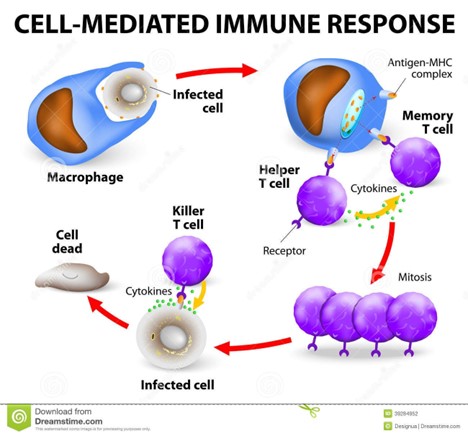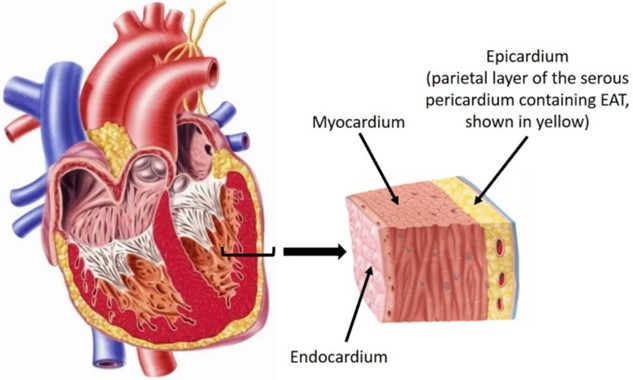T lymphocytes are responsible for:
Humoral immunity.
Cell-mediated immunity.
Programming macrophages.
Producing antibodies.
The Correct Answer is B

T lymphocytes, also known as T cells, are a type of white blood cell that is an essential part of the immune system.
T cells are one of two primary types of lymphocytes — B cells being the second type — that determine the specificity of immune response to antigens (foreign substances) in the body.
T cells can be distinguished from other lymphocytes by the presence of a T-cell receptor (TCR) on their cell surface.
T cells originate in the bone marrow and mature in the thymus.
After migration to the thymus, the precursor cells mature into several distinct types of T cells.
One of these types is the CD8+ T cell, also known as cytotoxic T cell, which is responsible for cell-mediated immunity.
Cell-mediated immunity is the type of immunity that involves the direct killing of infected cells and cancer cells by cytotoxic T cells.
Choice A is wrong because humoral immunity is the type of immunity that involves the production of antibodies by B cells and plasma cells.
Antibodies are proteins that bind to specific antigens and mark them for destruction by other immune cells.
Choice C is wrong because programming macrophages is not a function of T lymphocytes.
Macrophages are a type of phagocytic cell that can engulf and digest pathogens and cellular debris.
Macrophages can be activated by cytokines, which are chemical messengers secreted by helper T cells and other immune cells.
Choice D is wrong because producing antibodies is not a function of T lymphocytes.
As mentioned above, antibodies are produced by B cells and plasma cells, which are another type of lymphocyte.
Nursing Test Bank
Naxlex Comprehensive Predictor Exams
Related Questions
Correct Answer is A
Explanation
The cell is the basic unit of structure and function of all known living organisms.
The cell theory states that all living things are composed of cells and that new cells are made from preexisting cells.
Cells are organized from atoms, molecules, and macromolecules, and contain organelles that perform specialized functions.
Choice B is wrong because a molecule is a group of atoms bonded together, not a living unit.
Choice C is wrong because an atom is the smallest unit of matter, not a living unit.
Choice D is wrong because a macromolecule is a large molecule composed of smaller molecules, not a living unit.
Correct Answer is B
Explanation

The endocardium is the thin inner lining of the heart chambers and also forms the surface of the heart valves.
Some possible explanations for the other choices are:
Choice A is wrong because the pericardium is the sac that surrounds the heart and consists of two layers: the fibrous pericardium and the serous pericardium.
Choice C is wrong because the myocardium is the thick middle layer of muscle that allows the heart chambers to contract and relax to pump blood to the body.
Choice D is wrong because epicardium is another name for the visceral layer of the serous pericardium that is fused to the heart and is part of the heart wall.
Whether you are a student looking to ace your exams or a practicing nurse seeking to enhance your expertise , our nursing education contents will empower you with the confidence and competence to make a difference in the lives of patients and become a respected leader in the healthcare field.
Visit Naxlex, invest in your future and unlock endless possibilities with our unparalleled nursing education contents today
Report Wrong Answer on the Current Question
Do you disagree with the answer? If yes, what is your expected answer? Explain.
Kindly be descriptive with the issue you are facing.
